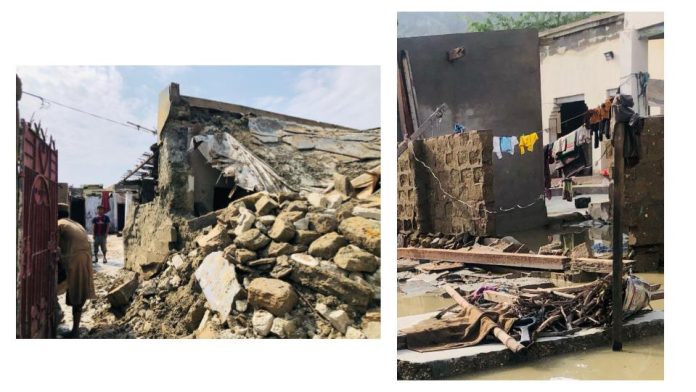Recently, during Chief Minister Jam Kamal Khan’s visit to Gwadar residents strongly protested, bringing the convoy to a standstill. The incident occurred when locals from TTSC Colony blocked Airport Road at Tahiri Plaza, citing the inadequate response to the flooding crisis in Gwadar in Pak-occupied Balochistan.
For the past six days, residents have been suffering as their homes have been submerged in 5 to 6 feet of water due to flood in the region, with no assistance from the district administration and provincial authority. The torrential rains have not only left large areas inaccessible but have also resulted in a shortage of essential supplies, exacerbating the challenges faced by the people of Gwadar.
Protesters urged immediate and robust relief efforts in the rain-affected regions, emphasizing the need for prompt rescue operations. The situation in Gwadar mirrors the plight of other areas in Pak-occupied Balochistan, where floodwaters have breached residential areas, causing significant damage and hampering the delivery of aid.
Gwadar’s Paradox
Notably, the ongoing heavy rains have not spared Gwadar, prompting residents and organizations to hold the Pakistan and Chinese projects accountable. The projects of the brutal Pak Army and their Chinese ally have obstructed the natural flow of water, leading to the inundation of the city, and heightening tensions among the affected population.
The much-hyped infrastructure projects that the Chinese promised the Army at the cost of the Baloch community have fallen short; locals grapple with basics like clean water and electricity. And the recent rains have further exposed the city’s vulnerability. The promised benefits of development seem elusive for those it aimed to uplift.
This prompts us to ask who truly benefits from Gwadar’s development. While the Army and Chinese revel in newfound prosperity, the true owners of the land struggle to meet basic needs.

